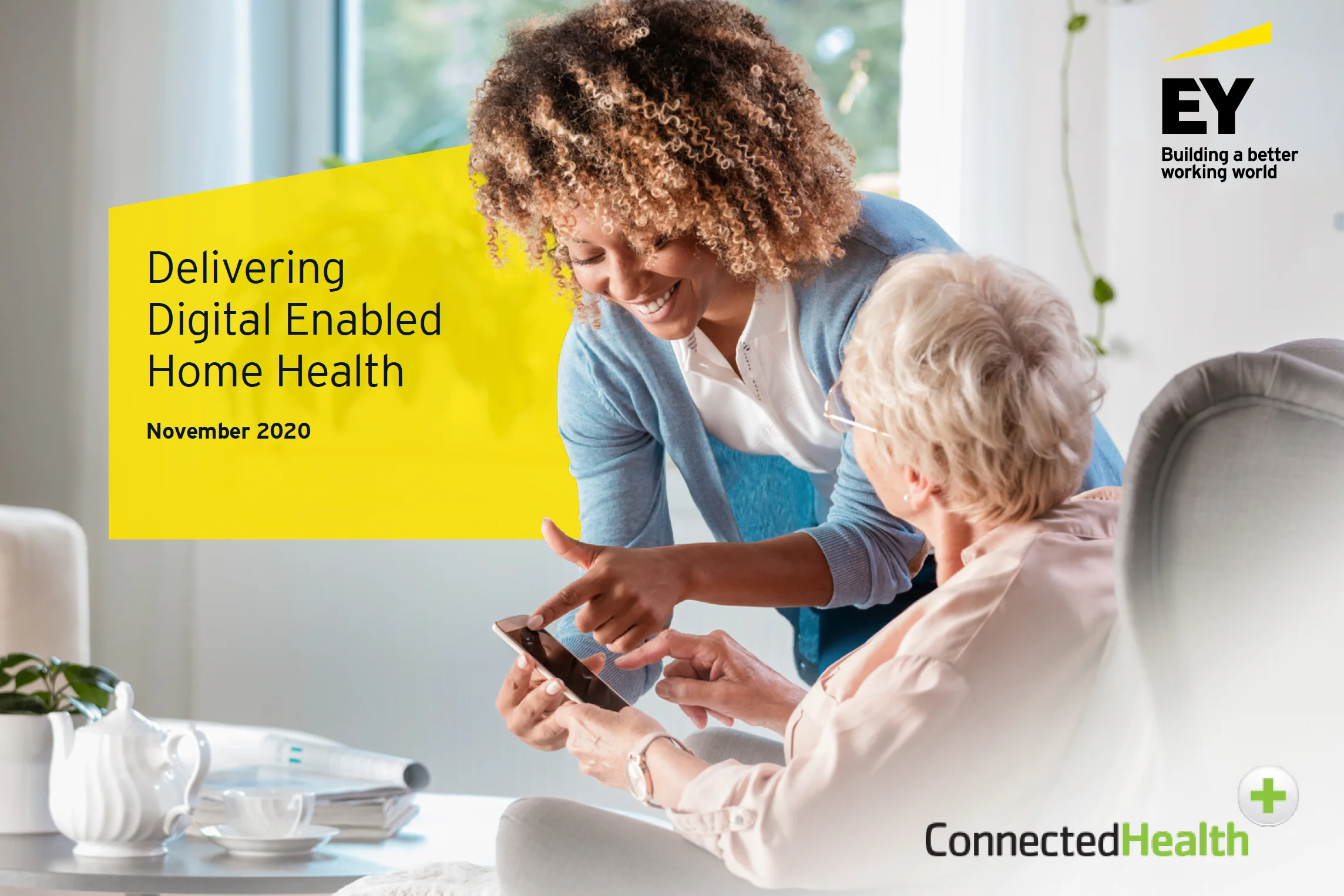The COVID-19 outbreak has emphasised the need to accelerate digital enabled homecare provision, according to a report by EY Ireland and domiciliary care provider Connected Health.
Entitled ‘Delivering Digital Enabled Home Health’, the collaborative report on the future of healthcare in Ireland states that we are entering an ‘era of transformational change’ with health care spending currently on an ‘unsustainable trajectory’.
The report highlights that the current pandemic has particularly emphasised the absence of ‘alternative options’ to nursing home care and the need for change in elder health care.
It singles out multi-occupancy rooms and outdated premises in some nursing homes as posing ‘challenges in protecting residents against infections such as COVID-19’.
The report states: ‘With the aging population increasing and the number of hospital beds decreasing, the number one choice for people to advance their years at home is with health care delivery provided at their doorstep.’
Following the publication of the report by EY Ireland, co-author Ryan Williams, a Director at Connected Health, said:
“The Covid-19 outbreak has brought the unsustainability and impracticality of traditional health care into sharper focus than ever before.
“The pandemic has taken a grave toll on our society and economy, but it is also acting as a powerful catalyst in accelerating the pace of transformation in the way health care providers both operate and view the world.”
The report focuses on how digital technology is positively transforming care for healthcare providers, patients and private care clients. It identifies the drivers in the provision of digital enabled homecare, the key benefits and the reasons why it is important for providers to fund and support its acceleration.
According to the study, health care providers ‘can improve the quality of care; reduce fraud, waste and abuse; drive down costs; deliver care in new ways; and enhance the patient experience by embracing new and emerging technology’.
The study notes that traditional health systems are under pressure from rising costs, growing consumer expectations and new technologies, adding that ‘a new health ecosystem is emerging’.
The report further states: ‘Providing hospital level care in the home takes pressure off acute hospitals by freeing up beds in the hospital system. More importantly, people prefer to be treated in the comfort of their own home with their family and friends around them.’
VHI estimates that from 2010 to 2017 more than 6,000 customers in Leinster were treated in their homes instead of hospital, equating to a saving of 78,000 hospital day beds and a claims cost of more than €27m.
Cutting edge innovations
The report explores a number of cutting edge innovations which are already ‘delivering people empowerment’ while increasing efficiency in the delivery of homecare in Ireland.
These include the Connected Health medical devices CareBox and airCeption. CareBox provides medication reminders and prompts a 24/7 Virtual Carer via video call, as well as a host of additional functionality. airCeption utilises patented technology to monitor, detect and alert patients/clients and carers to any form of incontinence, without the need for pads or near skin sensors.
Mr Williams, who is responsible for driving innovation at Connected Health, explains: “These innovations in clinical care technology make it possible to deliver very real participatory care, enabling clients and patients to remain at home and receive quality care.
“Digital-enabled home health deserves much greater recognition for the solutions that it presents. Dramatically increasing support and funding in this area will allow people and families to access their preferred home health option while reducing the unsustainable spending and stress on the entire health care system in Ireland.
“The provision of hospital level care at home takes pressure off acute hospitals by freeing up beds in the hospital system. More importantly, people prefer to be treated in the comfort of their own home with their family and friends around them.
“The future of health care lies in bold changes to business models, policies and funding strategies.”


